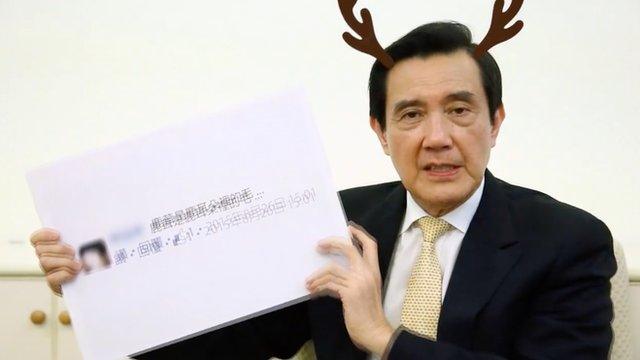Taiwan's Tsai Ing-wen sworn in as first female president
- Published
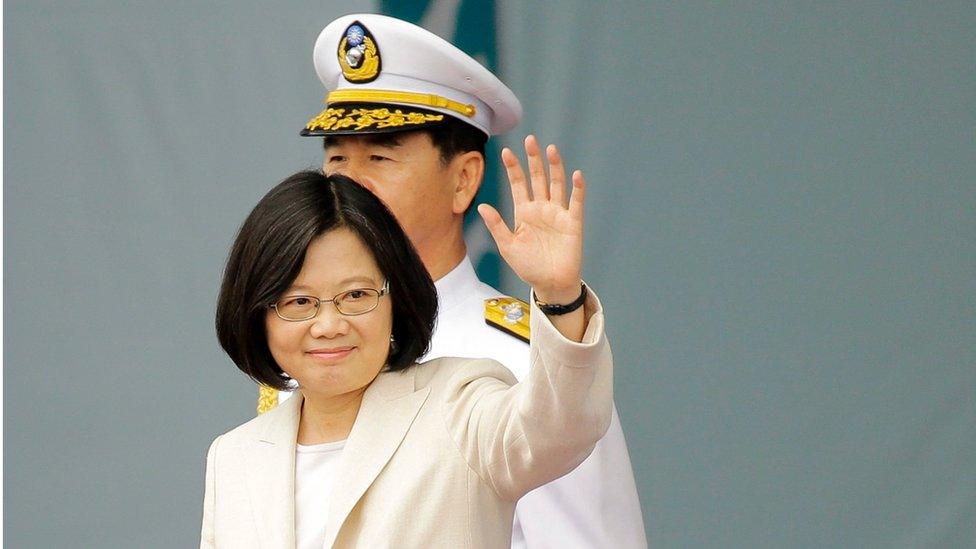
Ms Tsai's presidency is expected to see a change in the relationship between Taipei and Beijing
Tsai Ing-wen has been sworn in as the new president of Taiwan, becoming its first female leader and calling for "positive dialogue" with Beijing.
Ms Tsai, seen as an unassuming but determined leader, led the Democratic Progressive Party (DPP) to a landslide win in elections in January.
The DPP has traditionally leaned towards independence from China, which sees Taiwan as a breakaway province.
In the past, it has threatened to take the island by force if necessary.
It still has hundreds of missiles pointing towards the island.
Tsai Ing-wen, Taiwan's shy but steely leader
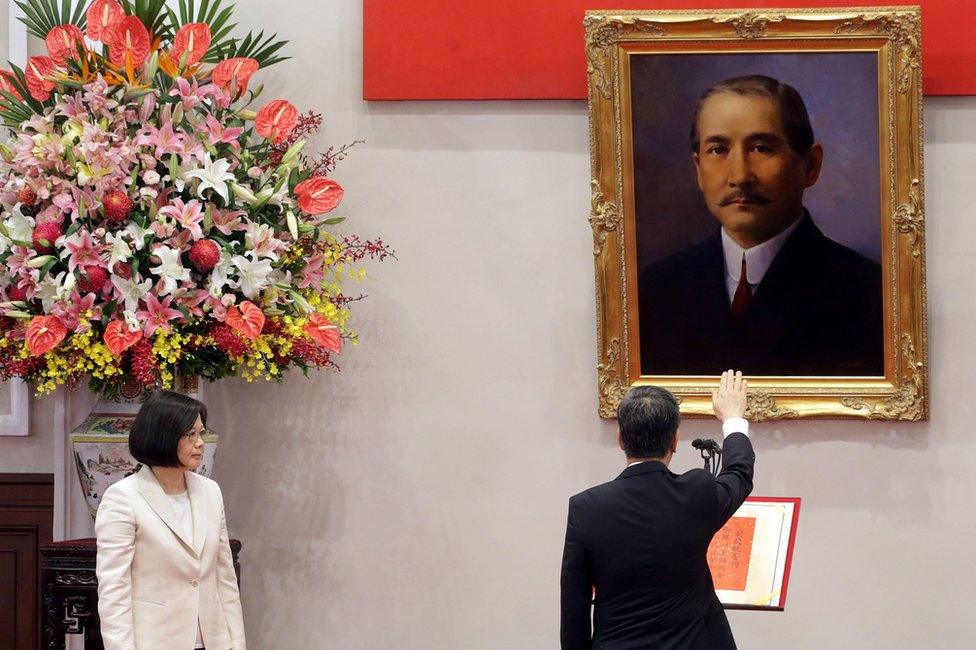
Chen Chien-jen was sworn in as vice-president, in front of a portrait of Sun Yat-sen, the founder of the Republic of China
Ms Tsai, 59, swore the presidential oath in front of the national flag, before being presented with the official seal.
She and outgoing President Ma Ying-jeou then came out to wave at the crowds watching on screens outside the presidential building.
In her inaugural speech, she said Taiwanese people had shown they were "committed to the defence of our freedom and democracy as a way of life".
The "stable and peaceful development of the cross-Strait relationship must be continuously promoted", she said, calling on both sides to "set aside the baggage of history, and engage in positive dialogue, for the benefit of the people on both sides".

Speech likely to irk China: Cindy Sui, BBC News, Taipei
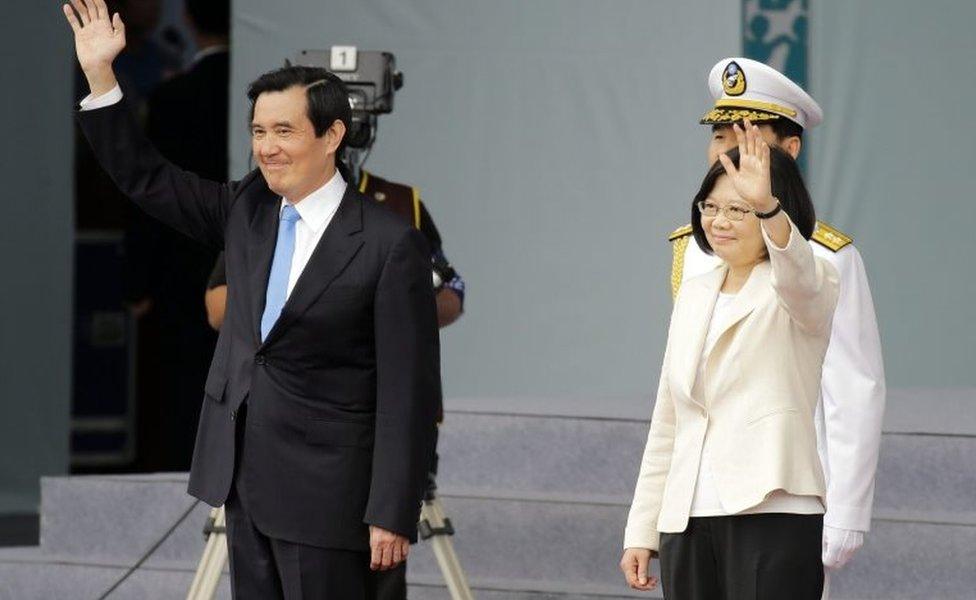
Ms Tsai and her predecessor Ma Ying-jeou then came out together to greet the public
What Ms Tsai said in her speech is unlikely to satisfy Beijing. It sees eventual unification with the island as non-negotiable.
Beijing has insisted she first recognise the two sides are part of one China, an agreement reached by both sides in 1992. On this, she stood her ground, recognising only that the previous pro-China government and Beijing had reached an understanding back then, but stopping short of accepting it herself.
With tensions rising in the South China Sea, Beijing is keen for Taiwan to be its ally rather than be aligned with rival claimants to the disputed islets in the sea.
What may also irk China is her focus on Taiwan's democracy and freedom - saying it's every Taiwanese person's responsibility to safeguard this.
This is a clear message to Beijing that Taiwanese people cherish these characteristics of their society and their self-rule more than economic ties with China, even if the mainland is the island's biggest trade partner and export market.
Democracy and freedom to Beijing mean pro-independence, so China will likely continue to distrust Ms Tsai.

It is highly unusual for Taiwanese high-ranking officials to take an informal approach in public
Ms Tsai's election win was only the second ever for the DPP - the Kuomintang (KMT) has been in power for most of the past 70 years.
But Mr Ma lost public support over his handling of the economy, the widening wealth gap, as well as what many say was too friendly an approach to Beijing.

Media analysis by BBC Monitoring
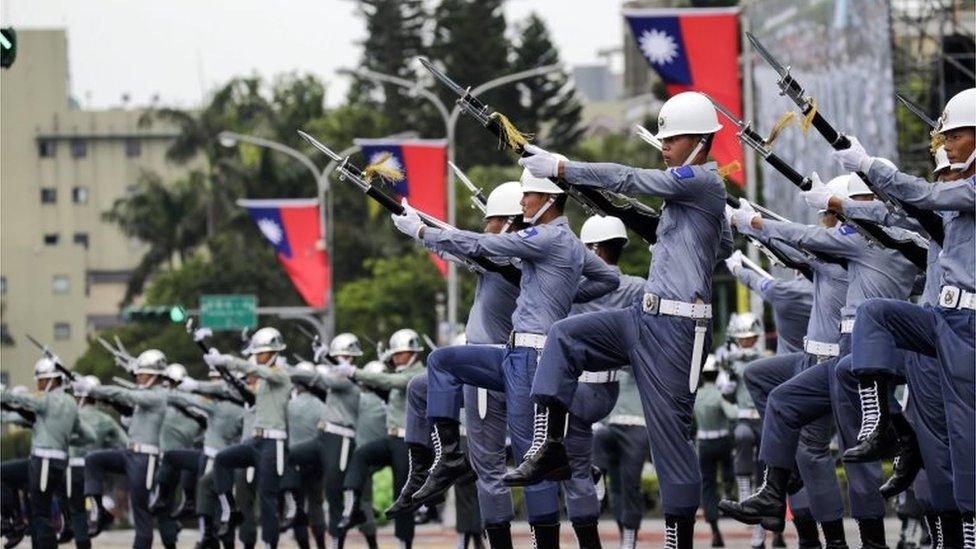
A military parade and a display of Taiwanese history are being held in the capital in celebration
Tsai Ing-wen's inauguration is making headlines in Taiwanese and Hong Kong papers. However, mainstream papers in mainland China appear to be giving the event scant attention.
In commentaries published ahead of the swearing-in, mainland Chinese state papers say her inauguration will mark the start of a "period of uncertainty" in cross-strait ties.
Some online outlets are quoting a pro-reunification Taiwanese portal Central Daily News saying the island will enter an "economic winter" under Ms Tsai's leadership.
The state mouthpiece Global Times says in an editorial that while Tsai may not seek "de jure" separation, her "softer approach will nonetheless allow pro-independence movements to linger in the island".
Online censors appear to be deleting messages related to Ms Tsai's inauguration from China's Twitter-like service Sina Weibo. Many of those deleted posts praised today as an "important day" in Taiwan's history, and some recounted the crackdown on the island before democratisation in the 1990s.

- Published17 January 2016
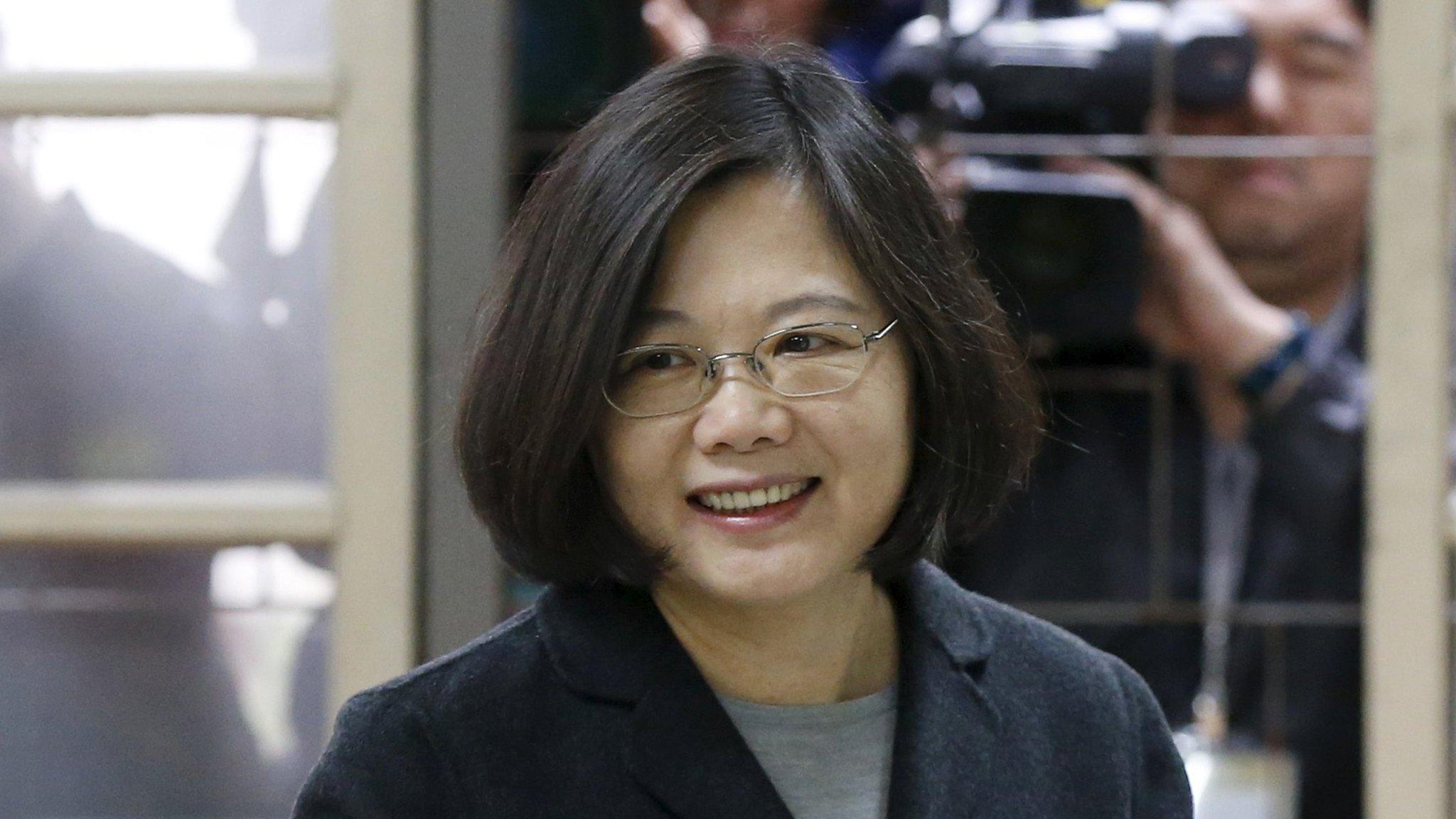
- Published18 January 2016
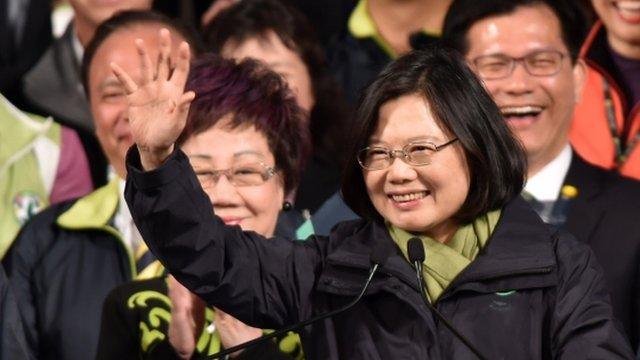
- Published8 January 2024
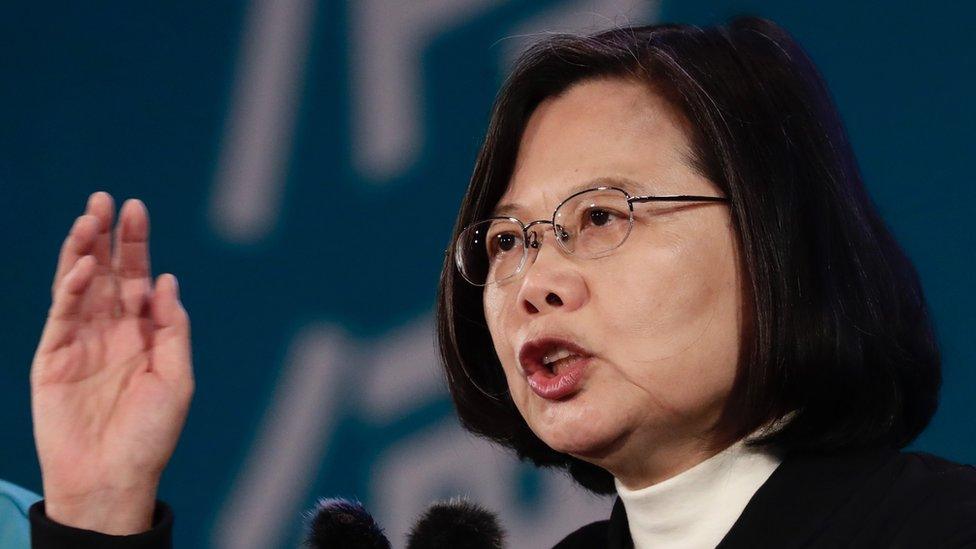
- Published20 May 2016
